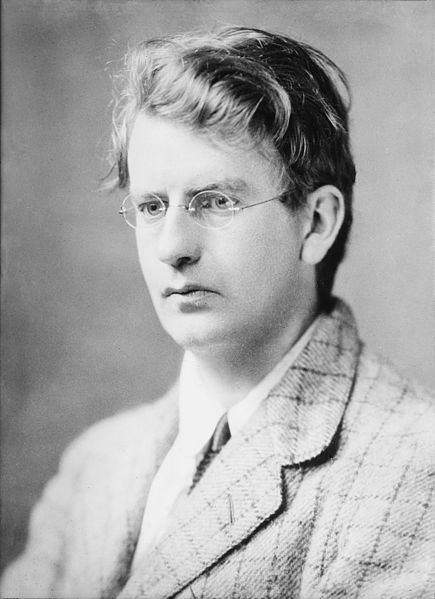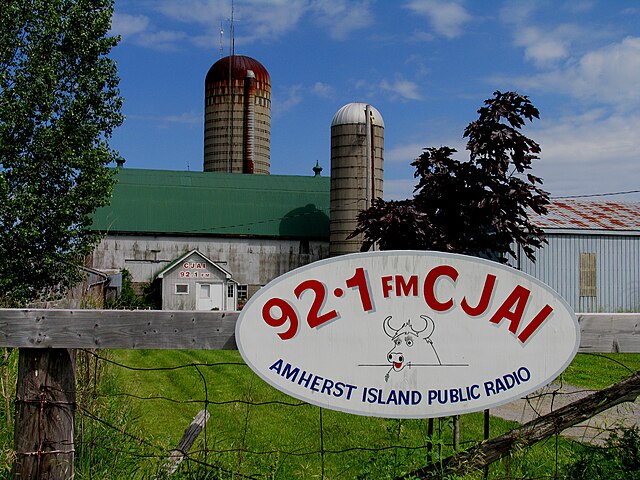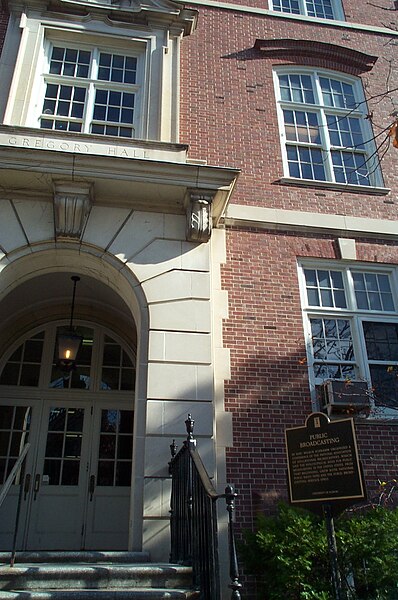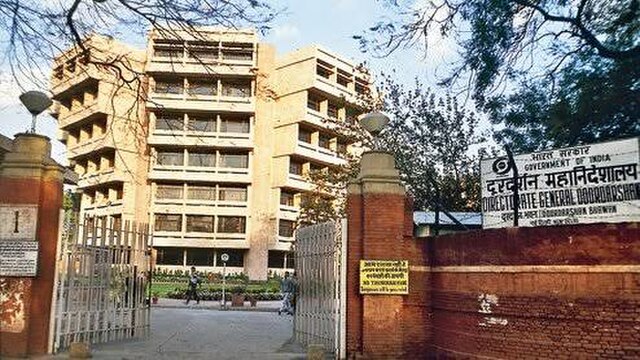The British Broadcasting Corporation (BBC) is a British public service broadcaster headquartered at Broadcasting House in London, England. Originally established in 1922 as the British Broadcasting Company, it evolved into its current state with its current name on New Year's Day 1927. The oldest and largest local and global broadcaster by stature and by number of employees, the BBC employs over 21,000 staff in total, of whom approximately 17,900 are in public-sector broadcasting.
The Radio Times masthead from 25 December 1931, including the BBC motto "Nation shall speak peace unto Nation"
Television pioneer John Logie Baird (seen here in 1917) televised the BBC's first drama, The Man with the Flower in His Mouth, on 14 July 1930, and the first live outside broadcast, The Derby, on 2 June 1931.
King George V giving the 1934 Royal Christmas message on BBC Radio. The annual message typically reflects on the year's major events.
Statue of George Orwell outside Broadcasting House, headquarters of the BBC
Public broadcasting involves radio, television, and other electronic media outlets whose primary mission is public service. Public broadcasters receive funding from diverse sources including license fees, individual contributions, public financing, and commercial financing, and avoid political interference or commercial influence.
Amherst Island public radio
The Gregory Hall on the campus of University of Illinois at Urbana–Champaign hosted an important meeting of the National Association of Educational Broadcasters in the 1940s, that spawned both PBS and NPR.[citation needed]
Broadcasting House, the longtime headquarters of RTHK
Doordarshan Bhawan, New Delhi (headquarters of DD)








